India Oxenberg On NXIVM Leader Keith Raniere's Life Sentence: 'I Felt a Sense of Peace'
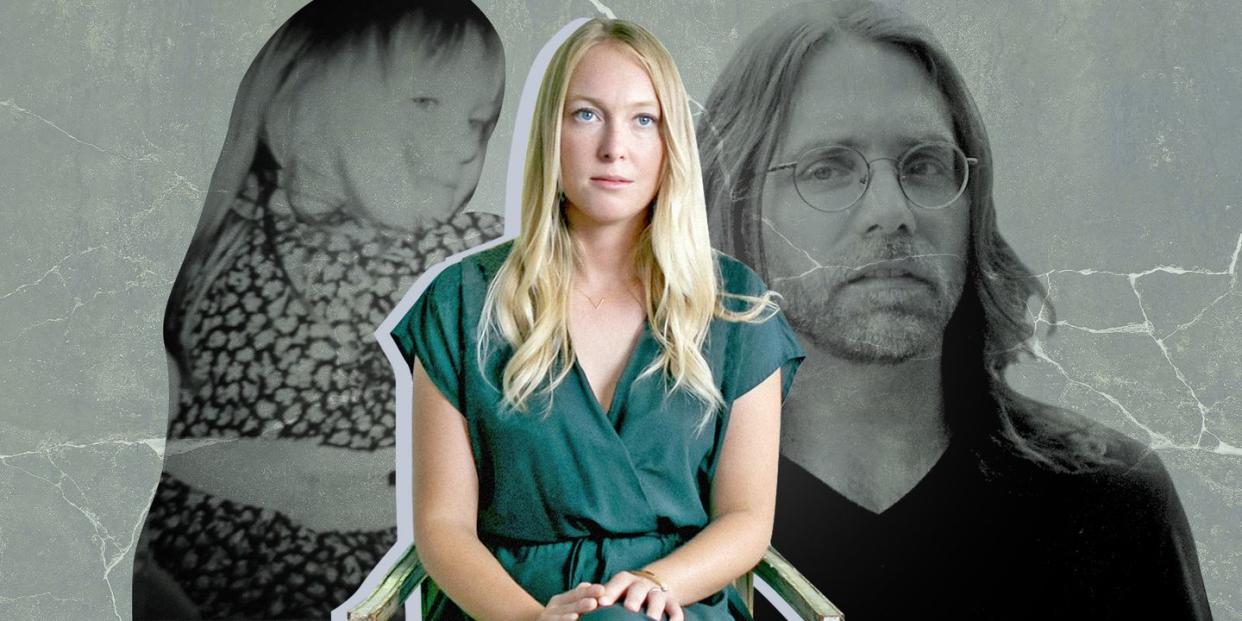
- Oops!Something went wrong.Please try again later.
India Oxenberg has been out of NXIVM for two years now, but it wasn’t until this past Tuesday that she could finally, truly rest easy. In a Brooklyn courtroom on October 27, NXIVM “Vanguard” Keith Raniere, now 60 years old, was sentenced to 120 years in federal prison. “I felt a sense of peace knowing that he's not getting out. It's one more bad guy off of the streets,” the 29-year-old told Esquire on Thursday, two days after the sentencing.
The daughter of Dynasty actress and royal descendant Catherine Oxenberg spent seven years entrenched in what has since been revealed to be a malicious "sex cult." After years in NXIVM’s Executive Success Programs (read: neuro linguistic programming and grooming), India was recruited into DOS, a secret group within the organization marketed as for women only, through which Keith Raniere was puppeteering a web of "slaves."
In DOS, India was frequently forced to hand in damaging collateral, kept on a 500 calorie per day starvation diet, coerced into becoming involved sexually with Keith Raniere, and branded with his initials near her pelvis. She escaped from the dark grips of NXIVM in 2018 following the arrests of several of its high-ranking members, but she’s laid rather low the past few years throughout the extensive media coverage of the cult’s implosion. Her mother Catherine wrote her own book on the matter, and participated in HBO’s NXIVM documentary The Vow, but India tells of the atrocities she endured in the cult for the first time in her own words in a gripping new STARZ documentary series she executive produced called Seduced: Inside The NXIVM Cult, as well as in an audiobook entitled “Still Learning.”
India flew into New York from L.A., where she now lives with her fiance Patrick, to deliver a statement at Keith Raniere’s highly publicized sentencing this week. Along with 14 other victims, she stood in court and faced Raniere—once a god-like guru to thousands, now just a small, soulless criminal—one last time.
Esquire: What was it like being in the courtroom for the sentencing and delivering your statement?
India: I was definitely nervous going into it, but I felt incredibly empowered by all the other men and women who shared their stories and their truths about NXIVM. That really helped me feel even more brave. Seeing an extraordinary amount of resilience was inspiring, but it was also really validating to see justice be served for so many people. For so many years, this man has gotten away with such cruel and inhumane behavior. I speak for myself, but I think I speak for everybody that we're all just really, really validated by that verdict. I mean, it exceeded my expectations. I thought we were getting life, not 120 years. That's a statement.
What was it like hearing the other victim statements?
Heartbreaking at times, moving at others. Some of these people I was very close with, and some of them I'm still close with. So it hurts when you see your friends in pain, but it was also really beautiful because you could see how their spirits haven't been broken. Ultimately Keith didn't win because they're up there sharing their truth. And he is being charged.
You talk about how small he appeared during his initial trial in Seduced. What was the experience of seeing him again like?
The same. He looked small and he was actually putting on what felt like a role. Like he had to be this little martyr, this lamb. He changed his demeanor, his body language was different. He was hunched over. He changed the tone of his voice. And all I wanted to say is, that's bullshit. Because it is, it's all a ploy, but he believed it. He actually believes that he's still innocent. And at the end he had the nerve to still call us liars, which at that point was obviously an insult, but almost laughable. Like, "Wow, you are not capable of feeling anything." And I didn't go in expecting to get anything from Keith out of sharing my statement. I went in knowing I wasn't going to get anything, that this was really just for me and my own closure, but it’s just beyond delusional. I mean, here you are at the end of several years of this organization going on and this trial happening and you're still defending yourself for something that's so clearly untrue. It was just shocking.
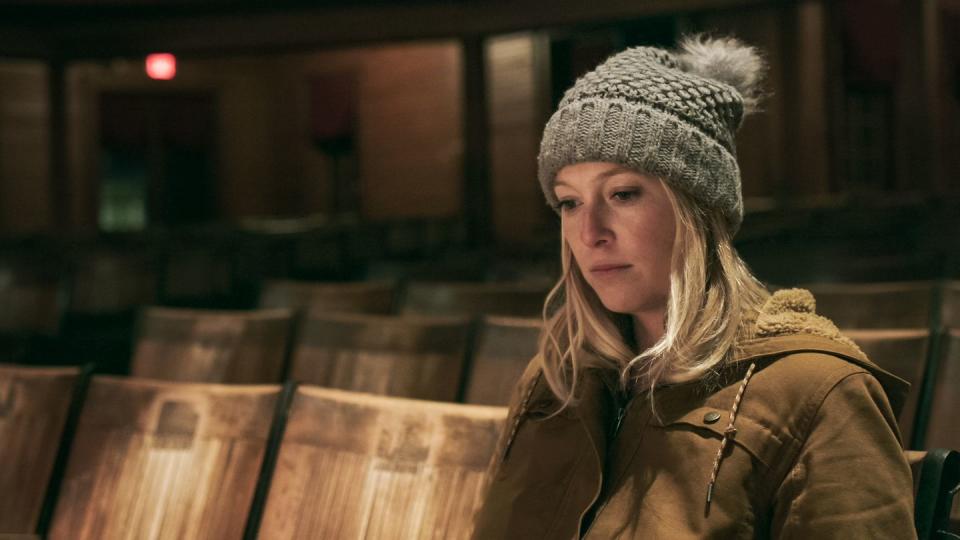
The statement he gave, a sort-of apology, seemed contradictory, from what I read.
He wasn't apologizing because he is incapable of that. He is incapable of feeling empathy for people. That was once again very clear to me on Tuesday. And so, even though he attempted an apology, it wasn't actually an apology because in the end he said that we were still lying and that he was innocent of these charges. And he put on this whole thing of, "Oh, put the burden on me, my co-defendants are innocent." And I was like, this is all an act. I mean, it was just so clear to me how manipulative and unimpressive he is.
Do you feel like justice was served with the sentence that he received, if there can be true justice?
This was an example of the truest justice we can get because it's validated by the law. And the judge was incredibly fair and it’s his job to bring people justice, but that will never give back the time that all of these people lost. I mean, hearing some of these statements of people who spent 12 years, 20 years, me—seven years, that's your life. Nothing can give that back to you. But I felt a sense of peace knowing that he's not getting out. It's one more bad guy off of the streets. And I feel safer, I hope my siblings feel safer. I hope many people do because he is a dangerous man. And he's still controlling people. There's still people who still are loyal to him.
I wanted to congratulate you on Seduced. It was so well done. What was the experience of producing it like?
For a long time I didn't see a future for myself when I was in NXIVM, and I had left a lot of the things that I loved behind, including career aspirations. And so for me, being able to executive produce was an incredible opportunity to take my story and my life back in my hands and share something that I thought could be informational and educational, so that other men and women can identify predators or predatory behavior in any situation. That was my goal—I'm going to get my story out, say my truth, move on and hope that it helps other people. But in the process of doing that, I felt totally reinvigorated. From a career standpoint, I thought, "Oh my God, this is what I loved. And this is what I had left behind." And writing was additionally appealing for me because for a long time, when I first got out, I couldn't even verbalize what I had experienced. I couldn't even be honest with myself. So writing was the first kind of entry point for me. And the docuseries was just an extension of that healing process and just reclaiming my life back. I've had this story taken from me and had people speak for me. And that was actually one of the common themes from some of the Jane Does [featured in the documentary], just having your story told for you is difficult because it gets interpreted, it gets digested in so many different ways that it's not even you, it's not even your voice. And I wanted it to be in my voice. And that's partly why I narrated my book. I just wanted to get it all out so I could move past this.
Right. I know you spent many years being spoken for in the press, and this is the first press cycle you’ve done for yourself. What’s that been like?
It was scary because I felt pretty burned by the press and I wanted to avoid them entirely. I thought maybe I could run away to the mountains and no one would ever speak to me about NXIVM again. But the truth is that's not how it works. And I've found for myself and my own sense of peace that you have to go into it, even if it's uncomfortable. And I'm still doing that now with certain things that are hard to talk about. So it's continual. There's a lot of layers to this. There's a lot to work through.
What was it like for you being back at all the locations that these things happened at, to film the documentary?
I say this in the documentary and I really do believe this: I don't want to be afraid to do things in my life. I don't want to be afraid to go somewhere or to talk to someone about something difficult. And I am afraid sometimes, and going back to these places was just the start of me confronting these fears and things that I thought I might have to avoid and feel shameful about for the rest of my life. There came a point that I just didn't want to live like that anymore. I didn't want to have to hide and feel ashamed or afraid of everybody's judgment because of their own opinions or what they thought I was or who they think I am. And so a lot of it had to do with me, just wanting to confront that.
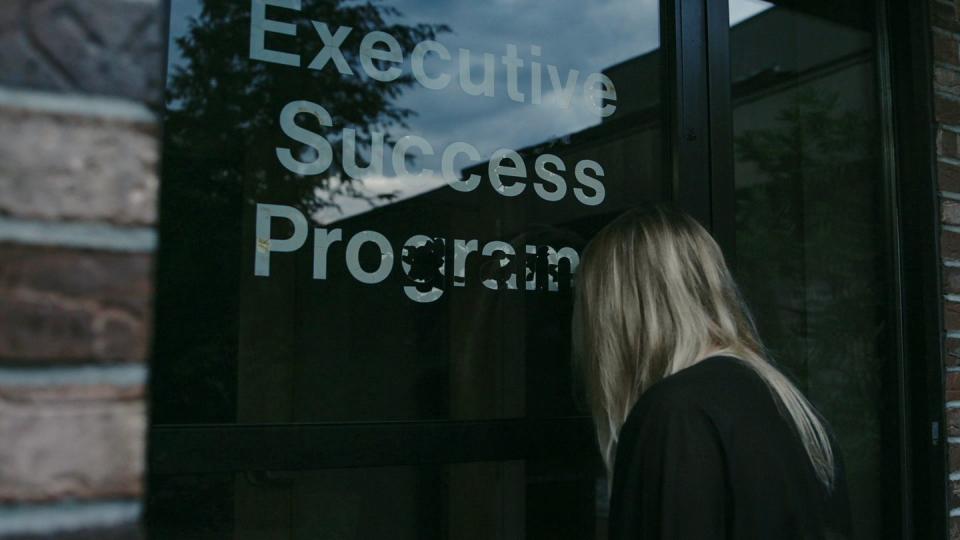
Was there one part of filming that was especially revelatory or challenging for you?
Yes. The part that's been continually hard is talking about the collateral. It has been difficult to talk to my family about it. It has been difficult to talk to my fiance about. And just speaking about it in general brought up a lot of emotion. And prior to filming, the only people I had spoken to about this were the FBI and my therapist. So now I'm opening up about these very scary and intimate details that could...they're humiliating, but that was the purpose of the blackmail. It was to silence you because of the humiliation. You have to address it, but it's still hard and it still hurts.
Do you know where your collateral is now?
No. So that’s one of the things, and why I think anybody who’s left—DOS specifically, and NXIVM in general—is so brave, because we don’t know where all of our collateral is. There could be multiple copies. The FBI has some, so it’s out there and that’s nerve wracking. But also I think part of speaking out has been me wanting to get ahead of that. Like that can’t control me anymore. That can’t stop me from talking about what happened.
Right. Otherwise it's doing what they intended for it to do.
Exactly. And that's the thing that I feel like is the most empowering. Saying, "You can't control my life. You can't dictate my happiness.” And I feel like a lot of people who have left have had revelations like that, but there are also many people who are still very afraid to speak out and to even admit their participation in NXIVM, let alone DOS.
Because of stigmas?
Well, that's one of the more unfortunate things that happens. People's judgements and stigmas of people who have been abused or people have been in cults are so negative and not compassionate. And so it keeps a lot of people in a state of shame and paralysis. So I didn't want to live like that. It was horrible.
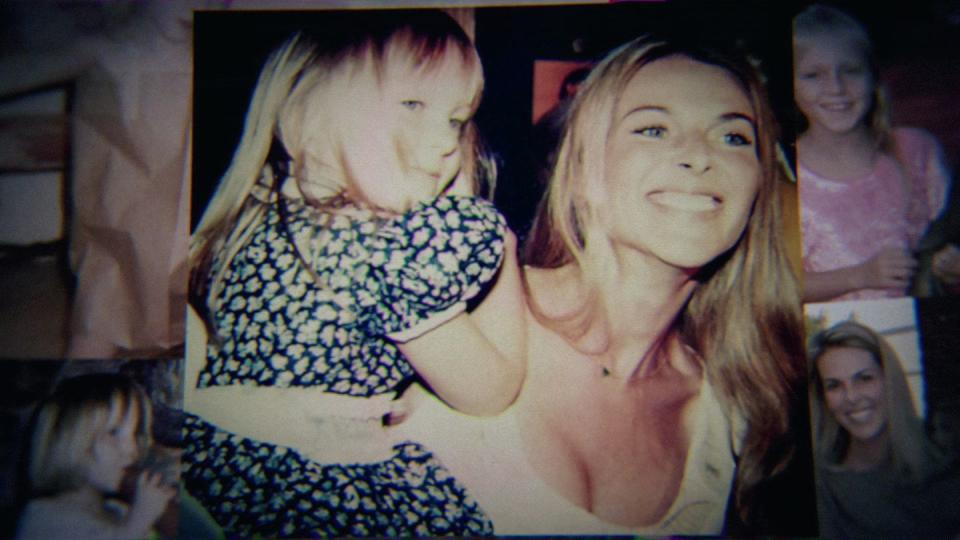
Your relationship with your mom is a huge focus of both Seduced and HBO’s The Vow. She spent many years trying to connect with you, not giving up, going to the press. I'm curious, in that regard, how you saw the relationship between Nancy and Lauren Salzman while you were inside NXIVM, while they were actively trying to discredit and demonize your own mother to you.
The relationship with Nancy Salzman and her daughters was always kind of a mystery to me. Within the organization, they kept a lot of things compartmentalized, so some people would know some things. Others would know fragments of it, similar to the mob. That's kind of how they operated. So there are many things about their lives that I didn't know. And because I had not been there for 20 years, there was a lot of history that I didn't know. So I always found their relationship kind of a little off, but I couldn't quite get it while I was there. They're like a propaganda machine, they're always spinning stories to kind of deflect from any negative feedback that they could get. And they were good at that. But that's brainwashing, that's indoctrination. I mean, it's dangerous and it's devious and it gets people to do things that go against themselves. And I experienced it when I was having problems with my own mother, because I was bombarded with all of their negative messaging. “Your mother's a psychopath, she's trying to hurt you.” But on top of it, I was also estranged from my mother and I had very little contact with my family in general, and so these were people I trusted and I retreated back into them rather than doing what I wish I would have done, which is get out sooner. But I didn't. And that was a horribly chaotic time because a part of me was still there and I missed my mom, but I also couldn't admit that because I would have been scrutinized for it.
One of the most shocking parts of Seduced for me was when you described the retreat weekend that Allison took you and her other DOS slaves on and made you all line up for punishment. What was going through your mind during that?
I just remember thinking, “Don't piss her off.” And I know that's a sad thing to say, but honestly at the time I was so scared of making her angry and being the target that I just kind of froze. And I just remember watching my friend get berated by Allison for standing up to her and thinking, "Oh my God, I don't want that to happen to me." And that was one of the ways that I was silenced. I'm the type of person that doesn't really like conflict in general. Like in my normal life, I hate problems. I hate drama. I try to avoid it, I want peace. So I do that naturally. And so in a situation of survival, that's the tactic I chose—to accommodate her. And it's something that I felt a lot of shame for, for a while. And I've worked on it a lot in therapy because you want to think that you're going to be brave and amazing and stand up against all these injustices. And I talk about that in the doc, but you really don't know what you will be like in every situation, you just don't. And there was very little room for error without punishment, even if you were doing well, you could still anticipate being punished.
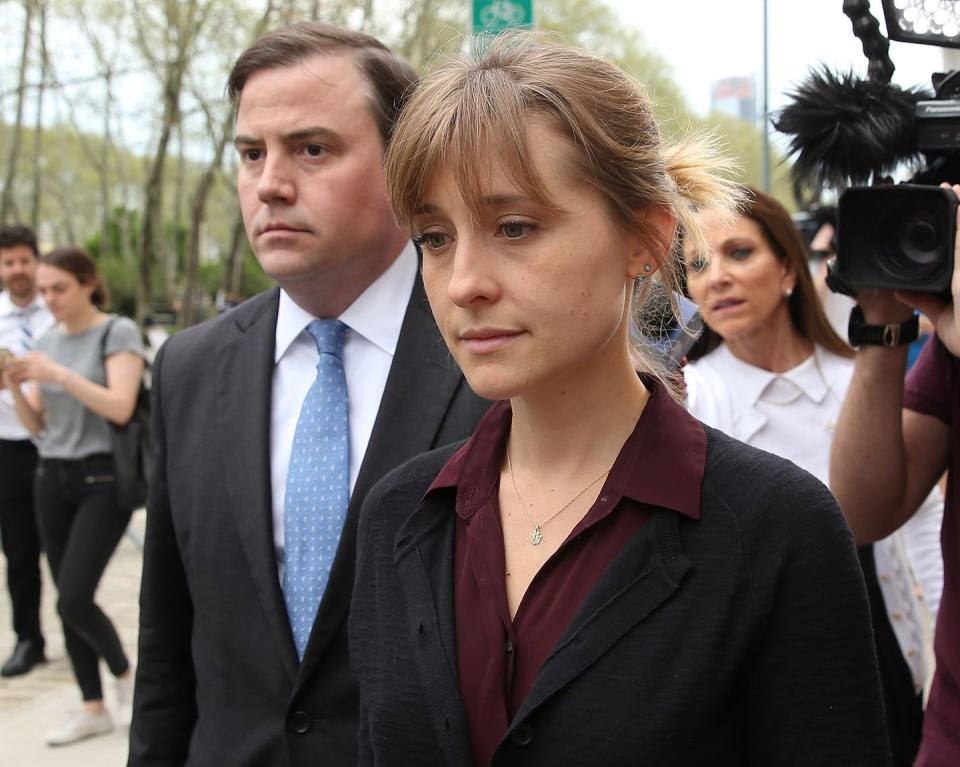
How do you feel about Allison Mack today?
That's such a hard question because I haven't had any contact with Allison since the time she was arrested. So I don't really know what her mindset is, if she's decided to see the truth, if she's had psychological help. I just don't know. So it's hard for me to pass judgment on her in that way. I don't think it's fair because I want to be the kind of person that gives people the benefit of the doubt that they'll see the truth, they'll own up to what they've done. Because I'm still doing that in my own process. And I think Allison is a broken person and she's going to have to face the court and take responsibility for a lot of cruelty that she inflicted on people.
Did you have a relationship with Clare Bronfman at all?
Not really. She was pretty hard to reach, pretty cold, pretty standoffish. I did menial work for her, like grocery shopping and errands and things when she requested it. But I didn't have much of a relationship with her. I was really disturbed by what I found out on Tuesday about how she affected other people's lives, much more than she affected mine. I mean, she did damage to me. She tried to get me to sue my mother. She tried to get me to discredit her and defame her in the media. She even set me up with a lawyer who pretended to be on my side that was trying to get me to say that NXIVM wasn't a cult, while I was an indicted co-conspirator. I mean, she fucked with me without me even knowing, and she fucked with my mom. Sent threat letters to her that I didn't know about. And I was just being used as a pawn. I didn't realize how involved Claire was until the trial.
She wrote a letter to the judge about her still being loyal to Keith before her sentencing.
Yes, she will not denounce him. And that is one of the dangers of indoctrination. Look, she's going to prison for six years and nine months, and she still cannot denounce this man. That's a strong hold, but I've said this before—it takes the average woman in an abusive relationship seven times to leave her abuser. Now imagine that in a high control group. It's hard, it is really hard to break through that wall, because it's scary when you've had everything stripped from you. You don't have anybody to fall back on. And I had to go through that process myself, when I left, of feeling like...who the fuck am I? Do I even know myself? I made these decisions that were really scary that endangered myself and other people and now I have to deal with that and confront it. And I don't think a lot of people want to do that. But as long as I'm pretending, I'm just scared and in denial. And there's a lot of people that don't want to confront it—confronting it is also really dark. I mean, there were many days where I felt like I don't want to live in this body, if I'm being honest. It’s a lot of torture to come back to yourself, but there's nothing more worth fighting for then having your life and feeling whole again.
So tell me about your life now. What's next for you?
Well, I'm promoting the series and I'm promoting my audiobook, which is on Audible. And then I would like to continue to do work that's about healing and recovery and activism. I really want to step away from NXIVM. It's consumed so much of my life and my family's life. And I think we want to focus on better, more positive, less poisonous topics. But this will always be a part of me. I mean, it's a huge experience that we all had and now it's just time to transform it and turn it into good things.
You Might Also Like

